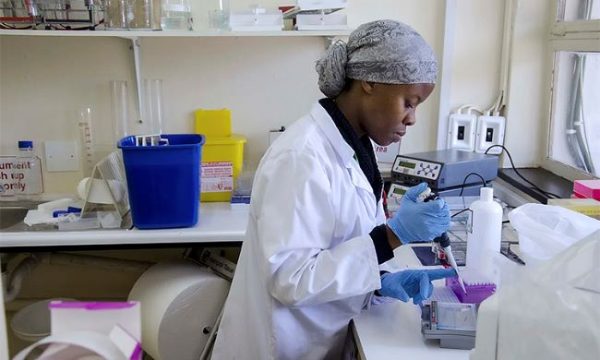The Africa Centres for Disease Control and Prevention (Africa CDC) has raised the alarm over a dual public health emergency, as cholera and mpox continue to spread rapidly across multiple African countries.
The surge in cases has prompted urgent calls for coordinated regional responses and increased investment in public health infrastructure.
Speaking during the agency’s weekly media webinar on Thursday, Director-General of the Africa CDC, Dr. Jean Kaseya, said the continent now accounts for 60 per cent of global cholera cases and a staggering 93.5 per cent of cholera-related deaths, as of May.
He noted that children remain disproportionately affected, representing nearly half of all reported cholera cases and more than one-third of the deaths.
Simultaneously, mpox (formerly monkeypox) is spreading at an alarming rate. According to Kaseya, Sierra Leone, the Democratic Republic of Congo (DRC), Uganda, and Burundi accounted for 94 per cent of confirmed mpox cases reported during epidemiological week 21, with Sierra Leone alone contributing 53 per cent.
“We are not only seeing more widespread transmission but also major gaps in surveillance, vaccination coverage, and access to basic water and sanitation services. These are exacerbating both cholera and mpox outbreaks,” he said.
The latest situation report identified Angola, South Sudan, the DRC, and Sudan as the four worst-hit countries, collectively responsible for 85 per cent of cholera cases and 92 per cent of deaths on the continent. In some rural areas, open defecation rates reach as high as 73 per cent, with children again bearing the brunt.
Kaseya urged affected countries to establish Presidential Task Forces to coordinate multi-sectoral responses. He also recommended emergency interventions in water and sanitation, robust disease surveillance, and sustained funding for vaccines.
He warned that mpox, once considered a localized zoonotic disease, is now spreading to new regions, including Ethiopia, Malawi, and Togo. Ethiopia, for instance, recently recorded its first confirmed mpox-related death—an infant—as of May 31.
In the DRC, limited testing coverage—just 27 per cent—continues to obscure the true scale of the mpox outbreak. Sierra Leone has already reported over 3,100 confirmed cases in 2024, with some districts recording positivity rates of up to 93 per cent, suggesting significant underreporting.
Despite vaccine distribution efforts, critical shortages remain. While over 726,000 mpox vaccine doses have been administered, Africa needs 43 million doses of oral cholera vaccine annually, far exceeding the 26 million doses received in 2024.
To close this gap, new vaccine manufacturing facilities are being developed in South Africa, Ghana, and Zambia, although they are not expected to be fully operational until 2027.
“These emergencies will not wait for us to catch up,” Kaseya said. “We need decisive political commitment, financial investment, and a united continental response to protect the health of our people.”
Mpox is a viral infection transmitted from animals to humans and also through close human contact. It typically causes fever, rashes, and body aches, and though often mild, it can be severe in vulnerable individuals.
Cholera, on the other hand, is a highly contagious bacterial disease caused by Vibrio cholerae, transmitted through contaminated food or water. It leads to severe diarrhoea and dehydration, and can be fatal if untreated—especially in regions lacking clean water and proper sanitation.


